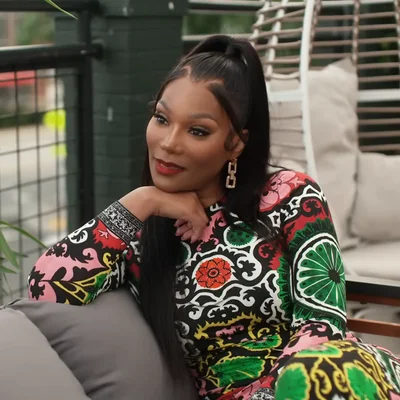
What Hidden Family Dramas Unfold in ‘The Real Housewives of Atlanta’?
In the latest episode of 'The Real Housewives of Atlanta,' viewers are treated to a deep dive into the intricate world of motherhood, family ties, and personal independence. This season continues to captivate audiences by exploring how these women navigate generational conflicts and emotional vulnerabilities, offering a mirror to broader cultural dynamics in Black American families.
The episode, aptly themed around 'Mother Knows Best,' highlights the multifaceted roles of mothers, from literal caregivers to cultural icons. We see Cynthia Bailey making a heartfelt cameo as a pillar of support for Shamea, while Kelli's tender moment teaching her daughter to drive adds a layer of warmth and relatability. These scenes underscore the show's strength in portraying Black women's experiences, emphasizing themes of self-reliance and economic empowerment that resonate deeply in today's society.

Analysis reveals a compelling contrast in maternal relationships. For instance, Kandi Burruss and her mother Mama Joyce exemplify the tensions that arise when wealth leads to caretaking roles, often creating rifts within families. Writer Ile-Ife Okantah points out how this reflects a wider racial wealth gap, where Black women like Angela achieve financial success but face the emotional complexity of supporting their kin. Angela's mother's choice to maintain independence, despite her daughter's offers, highlights a dignified pursuit of autonomy—a sentiment Okantah describes as 'pride in doing things my mom and grandmother never got to.'
Drew Sidora's storyline adds another layer of drama, with her estrangement from husband Ralph exposing the perils of toxic relationships. A poignant moment features Drew's mother, Jeanette, intervening to address the impact on their children, stating, 'When I can’t control a kid, there is a problem.' This leads to a cathartic exchange between mother and daughter, blending tears and laughter, which exemplifies the show's ability to humanize its stars.

Perhaps the most intriguing conflict involves Shamea and Porsha Williams, whose feud traces back to their mothers' fallout. Shamea's confessional reveals the strain: 'Porsha doesn’t like that now she gets to tell her side.' Their tense dinner conversation exposes Porsha's inauthenticity, as she dodges genuine resolution with passive-aggressive responses and abrupt exits. This episode critiques how fame can erode personal relationships, drawing parallels to other reality TV dynamics, like Lindsay and Carl on 'Summer House.' Shamea's optimism persists, but as Okantah notes, it might be wiser for her to step away from Porsha's 'sinking ship.'
Overall, the episode masterfully weaves personal stories with cultural commentary, showing how these women balance tradition and modernity. Side notes, like Angela's interactions with Charles or Brit and Mike's roommate-like vibe, add humor and contrast, keeping the narrative engaging.
In conclusion, 'The Real Housewives of Atlanta' not only entertains but also prompts reflection on family, wealth, and identity. What do you think—does motherhood always know best? Share your thoughts in the comments below and let us know how these storylines resonate with your own experiences.